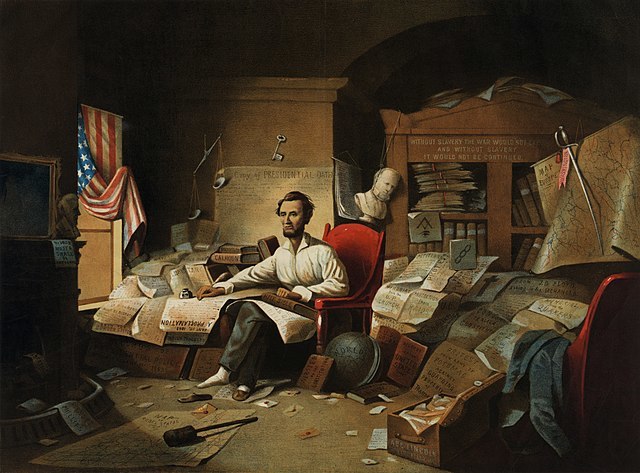February 2024: Abraham Lincoln and the Civil War: the Emancipation Proclamation
Monday, February 12, 2024, 12-1:30 EST
Please join us for a one-day-only Virtual Reading Group to discuss Abraham Lincoln and the Civil War: the Emancipation Proclamation, with Vernon Burton.

Pre-registration is required, and we ask you to register only if you can be present for ALL sessions. Readings will be available for registered participants.
Many of Lincoln’s speeches and letters articulate the concept of American freedom, and Lincoln’s vision continues to penetrate our culture today. Although it lacks the soaring rhetoric, the legalistic writing of the Emancipation Proclamation inspired in its own way.
When war broke out, enslaved people grasped almost instantly that fighting between whites might mean freedom for African Americans. It took the nation a little longer to realize that. Even the staunchly anti-slavery Lincoln did not believe the US government had the legal authority to end slavery. Away from the halls of government, however, was real life. Enslaved people began to free themselves by escaping to Union lines. Even southern papers realized that “Whenever a Yankee army has appeared practical emancipation has followed.”
On January 1, 1863, Lincoln issued his Emancipation Proclamation. In a language not in the least poetical, he spoke in an attorney’s legalese, and the rule of law was one of the document’s bedrock principles. But beyond any doubt this national contract broadened freedom, in some locales as a reality, in others as a goal. The measure clarified a moral issue at play throughout the Civil War; the war for the nation was now undeniably a war for freedom.
February 12, 2024 12:00-1:30 pm EDT
Readings:
U.S. Constitution, Thirteenth Amendment
Orville Vernon Burton, ed. The Essential Lincoln: Speeches and Correspondence: 17, “Letter to Horace Greeley”, August 22, 1862, pp. 120-122, 23, 23, :”Letter to James C. Conkling on Emancipation,?” August 26, 1863, pp. 147-152, and introduction to Emancipation Proclamation Introduction, p. 125-first 5 lines of p. 126 (PDF provided)
Bruce Frohnen, ed., The American Nation: Primary Sources. Abraham Lincoln’s Second Inaugural Address, March 4, 1865.
Orville Vernon Burton, The Age of Lincoln, pp. 115-116, p.125 on the First Inaugural Address for a contrast, p. 232 about a Nast cartoon, and pp. 240-242 on the importance of this address to the people after Lincoln’s death (PDF provided)
Orville Vernon Burton, ed. The Essential Lincoln: Speeches and Correspondence, 28. “Second Inaugural,” March 4, 1865, Introduction, p. 168 (PDF provided)